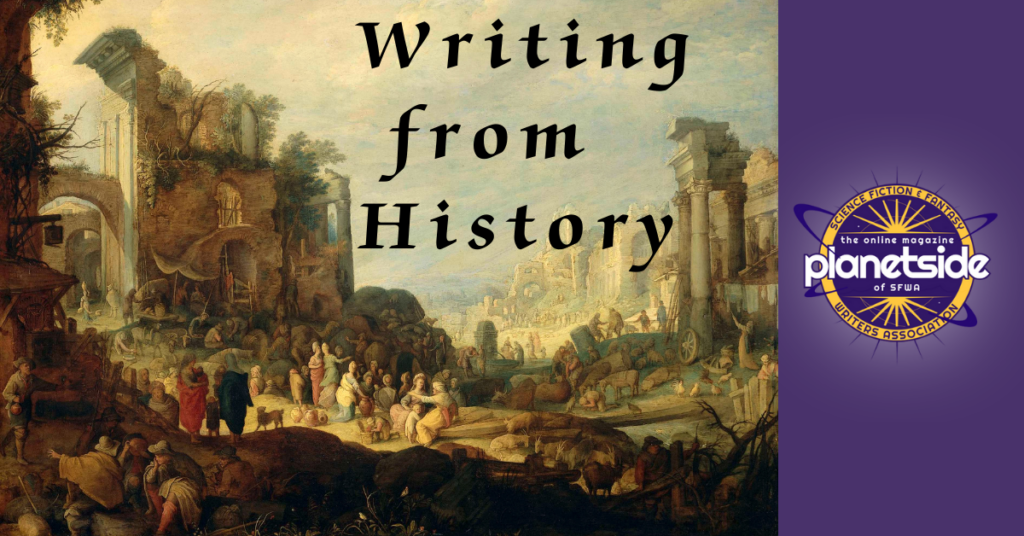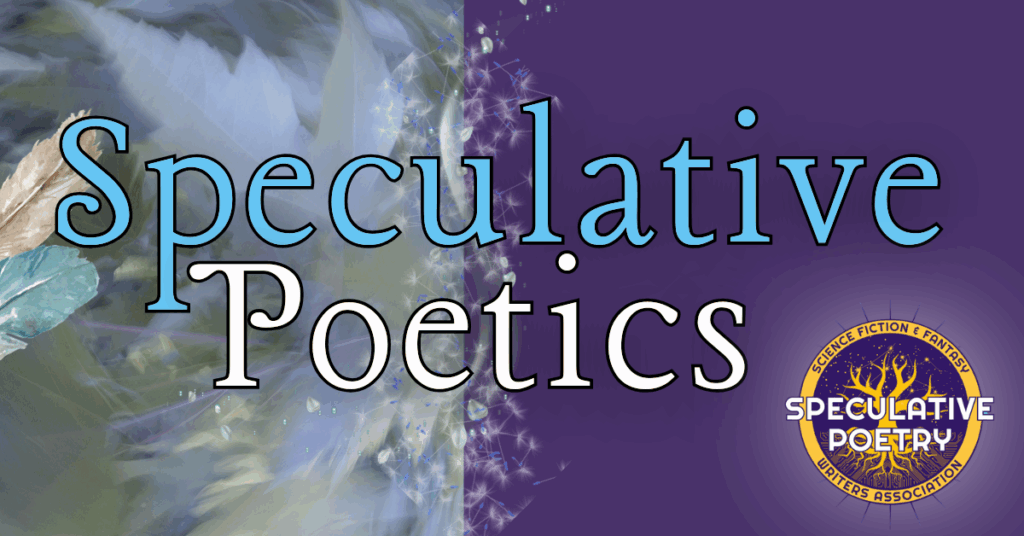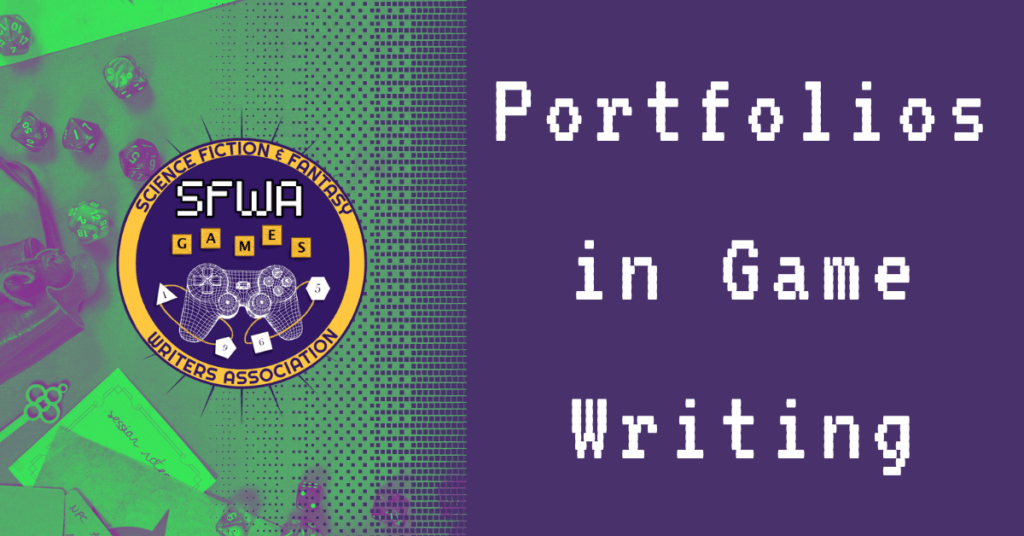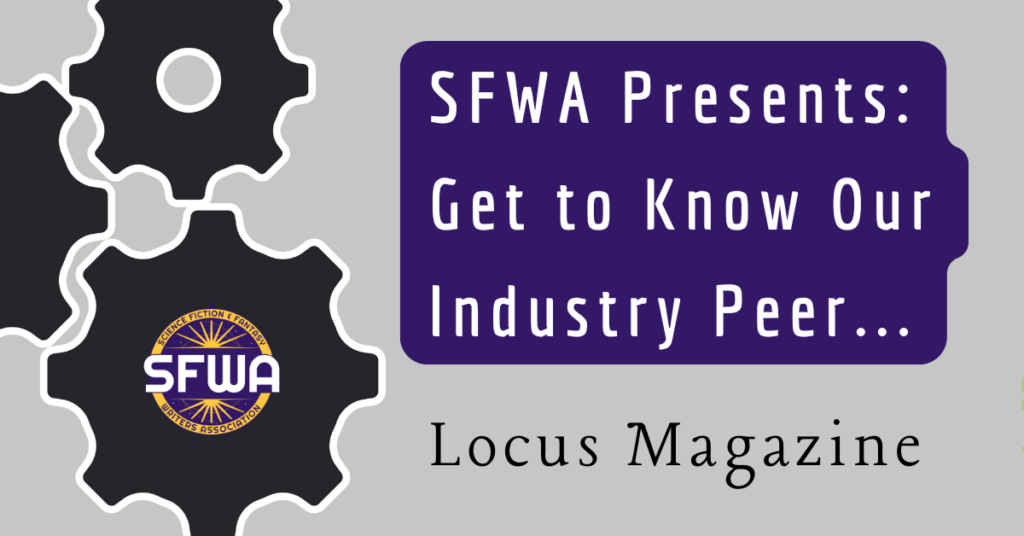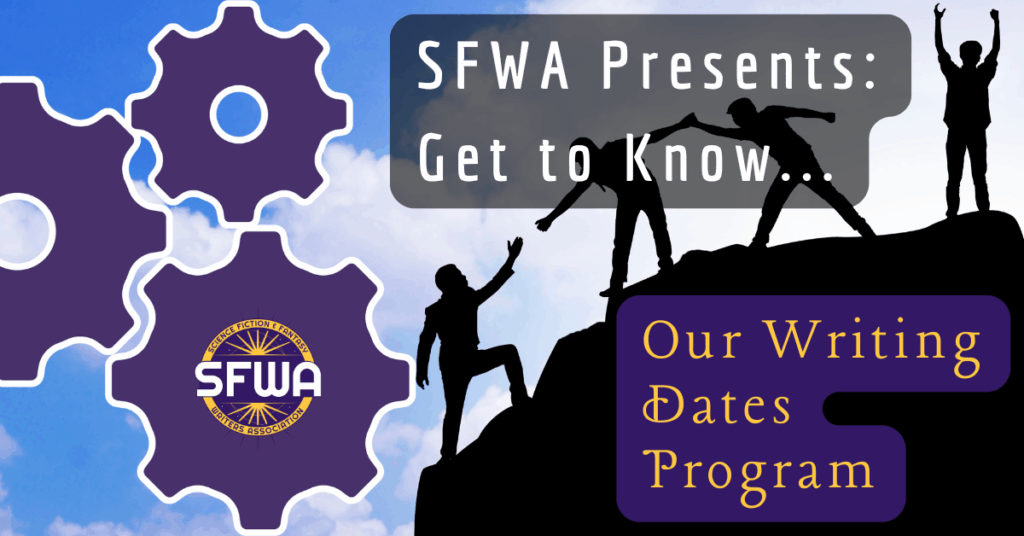Planetside Full Archives

Planetside: The Online Magazine of SFWA
Artifacts of Alt-History: Mining Museum Objects for SFF Inspiration
Crafting a Cover: An Interview with SFF Illustrator and Designer Jeff Brown
Handling Longer Projects Without Relying on a Plot Outline
How to Hand-Sell Books for Fun and Profit
STEM and Leaf: Writing Math and Science Poetry
Beyond the Beauty: A Research Guide for Responsible SFF Worldbuilding
Is It Flash Fiction or Poetry?
What Publishers Are Looking For in a Portfolio: A Conversation with Matt Orr of Wet Ink Games
BIPOC Voice Narration
SFWA Presents: Get to Know Our Industry Peer…Locus Magazine
Skill Tests for Video Game Writers
Verisimilitude in Speculative International Relations with Game Theory
How to Show Off Your Work
How to Get Started Writing SFF Theater
Finding Your Writing Flow After NaNoWriMo
Tailoring a Game Writing Portfolio
SFWA Presents: Get to Know…Our Writing Dates Program
Story Submission 101
Game Writing Portfolios 101
A Very Brief Look at the Recent History of SFF Plays
The First Hugo for Poetry: An Interview with Marie Brennan
How I Created an Exclusive London Writing Retreat for Next-to-Nothing
Estate Planning for Authors and Creatives
Avoiding “Arab Land” Stereotypes when Depicting the Premodern Arab World
The SFWA Blog
SFWA Presents: Get to Know…Our NetGalley Partnership Program
by the SFWA Publications Crew and Adria Bailton Editor’s note: This article is part of the SFWA Presents: Get to Know… series, which includes informational pieces about SFWA programs, committees, and initiatives, and also interviews with the SFWA volunteers who…
Why Crowdfund?
by Madeleine Holly-Rosing Though crowdfunding may seem intimidating to the first-timer, it is a viable alternative to direct sales, increasing your fanbase and sharing something unique to the world: your story. In this article, I will highlight some key elements…
Book Marketing: Comics vs. Novels
by Russell Nohelty I’ve been working in both book publishing and comic publishing for close to 15 years at this point through my work as publisher of Wannabe Press and editor of the Cthulhu is Hard to Spell comics anthology…
Planets and Plastic: A History of the SFWA Trophies and Awards
by Michael Armstrong Starting in 1965, the Science Fiction and Fantasy Writers Association trophies have evolved from the original Nebula Award of spheres and spiral galaxies encased in Lucite to newer awards such as the Kate Wilhelm Solstice Award of…
A Brief History of SFWA: The First Nebula Awards
by Michael Capobianco Less than a year after SFWA founder and President Damon Knight created the Nebula Award, the first Nebula Awards Ceremonies were held on March 11, 1966. Why “Nebula?” The name was first introduced without explanation in the…
How to Pitch to a Comic Book Publisher
by Kristen Simon Every comic book publisher has different preferences for receiving pitches. Some may not accept pitches at all, as they want to avoid the risk of copyright issues if a submission resembles a storyline they plan to publish. …
Breaking Down a Sequential Page: A Close Reading for Comics Writers
by A. A. Rubin Comic books and graphic novels are unique among storytelling mediums. While it shares characteristics with both prose and screenwriting, how the words and art interact on the page gives comics their own set of techniques. It…
Connecting with an Artist Is a Big Part of the Storytelling in Comics
by Jessica Maison If only there was an app for creator hook-ups, writers would all find the perfect artists and live happily ever after creating amazing comics. That’s how these apps are designed to work. Realistically, a writer would get…
How to Write a Comic Script
by Tim Susman The first time I tried to write a comic book script, I had no guidance about what a script looked like, but I’d read comic books and graphic novels. So I wrote up my idea for a…
Watch Those Contract Clauses! Clarification for MustRead, Inc. on Unusual Rights Inclusions
Editor’s Note: See also, “Moral Rights: What Writers Need to Know”, from our new series, “Writer Beware® Presents: Creators and Their Contracts”. Notice from the SFWA Board of Directors: Recently, the Science Fiction & Fantasy Writers Association (SFWA) was contacted…
Conjuring Images when Writing for Comics, Prose, and the Screen
by Jessica Maison A writer conjures images for their readers, whether writing prose, film, or comics. Comics writing has a set of best practices that share similarities and differences with screenwriting and prose writing. Most successful stories told in any…
Taking Humor Writing Seriously
by Ira Nayman A few years ago, I was on a panel on Humorous SF at a convention (an occupational hazard, given what I write). I opened with well-rehearsed remarks about how there seemed to be a resistance to my…
Butt in the Chair: How Disability Changed My Writing Habits
by Catherine Tavares Editor’s note: This piece is part of a series titled Writing by Other Means, where authors share personal experiences and industry intel around different production contexts and writing tools. It’s spring 2023. My desk is clean, my…
How to Navigate the Publishing Industry with Social Anxiety
by Marie Croke Publishing attracts story-lovers—readers, writers, gamers, dreamers—many of whom want to do more than just write their stories. They want to be out there, have a presence readers can find, yet they simultaneously struggle with anxieties that send…
Successfully Talking to the Press About Your Art: Plot It, Don’t Pants It!
by Gideon P. Smith Thirty years ago, I was first interviewed about my research. Five minutes after it ended, I had no idea what I had said. When I read the resulting article, my heart sank. The science and implications…
Jerry Pournelle: SFWA Historian
by Michael Capobianco I first encountered Jerry Pournelle in the early 80s on the pages of the computer professional magazine Byte, where he had a column called “Chaos Manor.” I had just purchased an expensive Texas Instruments 99/4 home computer…
SFWA Presents: Get to Know…Our In Memoriam Feature
by the SFWA Publications Crew and Emily Bell Editor’s note: This article is part of the SFWA Presents: Get to Know… series, which includes informational pieces about SFWA programs, committees, and initiatives, and also interviews with the SFWA volunteers who work to support…
Legacy of the Iron Curtain: Writing Ukrainian Fiction in a Post-Soviet World
by A.D. Sui In early 2024, I was going through the editorial process for my short story “Svitla,” featured in Embroidered Worlds: Fantastic Fiction from Ukraine and the Diaspora, when my editor lovingly pointed out that the original title “Svet”…
Romantasy: An Old Genre with a New Name
by Rosemary Jones The explosion of the “romantasy” tag on TikTok, book websites, and bookstores’ shelf-talkers sparked news stories on CNN and PBS News Hour in 2024. While the label is new, the idea of mixing romance and fantasy took…
SFWA Presents: Get to Know…Our New Comics and Poetry Nebula Awards
by the SFWA Publications Crew in conversation with Jessica Maison, Holly Lyn Walrath, and Wendy Van Camp Editor’s note: This article is part of the SFWA Presents: Get to Know… series, which includes informational pieces about SFWA programs, committees, and…
SFWA Presents: Get to Know…Our Career Mentorship Program
by the SFWA Publications Crew Editor’s note: This article is part of the SFWA Presents: Get to Know… series, which includes informational pieces about SFWA programs, committees, and initiatives, and also interviews with the SFWA volunteers who work to support…
Volunteers, Watch Out for Those Invisible Expectations!
by Marie Croke Read 25 stories a month. Copy-edit four stories an issue. Attend biweekly meetings. These are quantifiable tasks. They can be scheduled and carefully planned around. These are examples of what I consider to be visible expectations: clearly…
Decolonizing History in Brazilian SFF
by Lívian Bonato Despite many recent additions to global science fiction and fantasy (SFF), Eurocentrism is still a challenge in many fictional universes. In post-colonial countries like Brazil, even national authors often replicate narratives that intentionally or unintentionally exclude voices…
Preservation Guidance for Authors Planning to Donate Their Personal Papers to Archives
by Monica Louzon Writers have a unique power: With our words, we transport our readers to new worlds. It doesn’t matter whether we write stories or poems, or whether we write long or short works—the end result remains the same….

